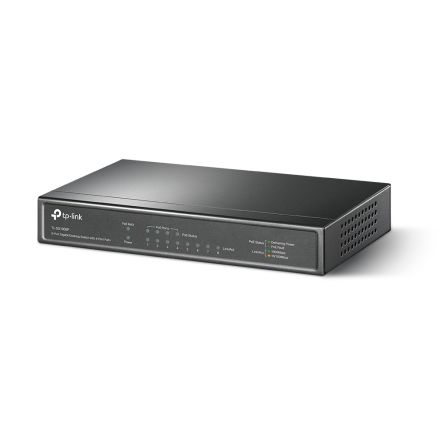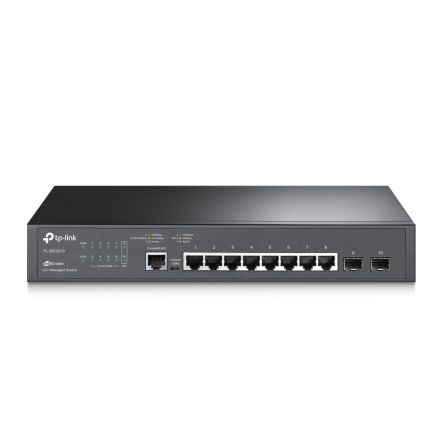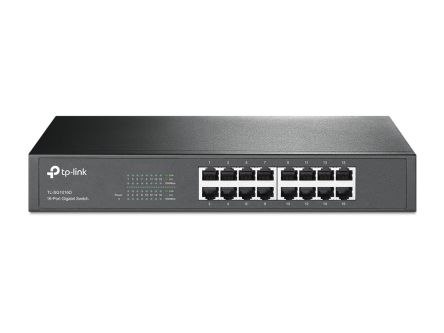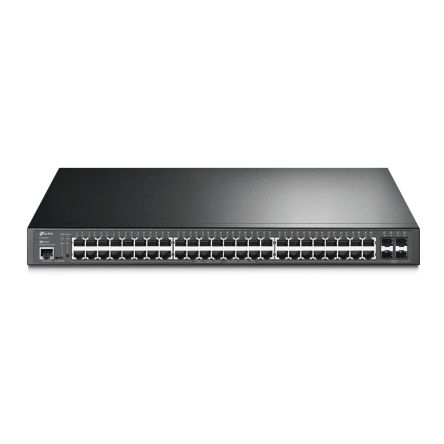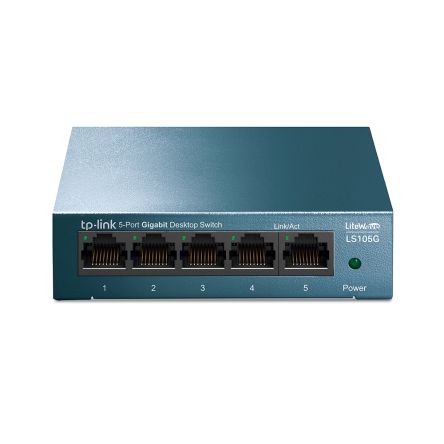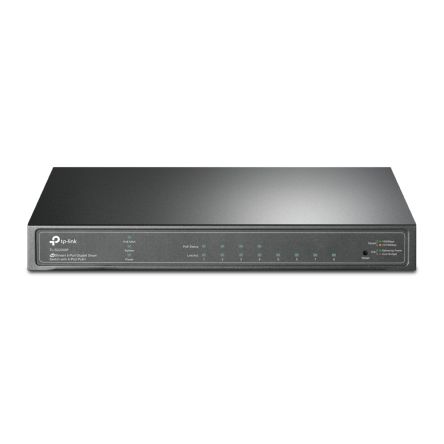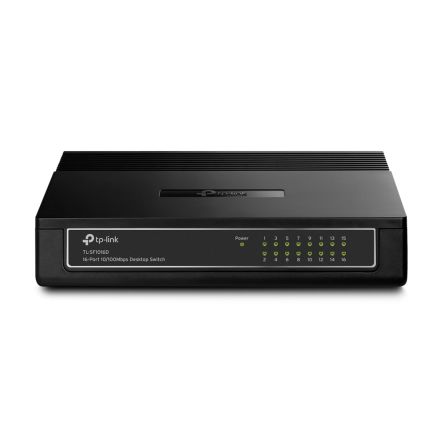- Automation & Control Gear
- Cables & Wires
- Enclosures & Server Racks
- Fuses & Circuit Breakers
- HVAC, Fans & Thermal Management
- Lighting
- Relays & Signal Conditioning
- Switches
- Batteries & Chargers
- Connectors
- Displays & Optoelectronics
- ESD Control, Cleanroom & PCB Prototyping
- Passive Components
- Power Supplies & Transformers
- Raspberry Pi, Arduino, ROCK, STEM Education & Development Tools
- Semiconductors
TP-Link Network Switches
Network Switches and Network Hubs are common connection points for different devices within a network. They enable you to connect computers to other computers, internet devices or networks. Network Switches are commonly used in offices, schools and homes. They feature multiple connectors called "ports" in which you insert your Ethernet cable, for example. The Ethernet port is a type of networking connection that not only transfer data signal but is also capable of power-up (PoE) devices e.g. CCTV cameras Router connected to the switch shares the internet across all connected devices Network switches are available with varying number of ports. Simple devices allow for connection of up to 4 or 6 devices while more expensive models feature 48 or even more ethernet ports for connecting networking devices. Visit our network switches guide for more information.
What kind of devices can I connect to the switch?
- Desktop Computers
- Printers
- Servers
- Game Consoles
- HD Drive Stations
- Smart TVs
- Laptops
- Routers
What is a difference between Network Switch and Hub?
Both hubs and switches look the same, but they operate slightly differently. Hubs are simpler devices, broadcasting all their information to all networking devices. They require less analysis and can, therefore, communicate quicker. Switches analyse the sender and receiver which can require more time but eliminates traffic congestion you may experience with Hubs. Hubs are ideal for small office and home environments while switches are better suited to small to large businesses which require more advanced network equipment.
What switches types are available on the market?
- Managed - the most customizable networking devices. Managed switches allow for controlling network configurations and data transfer. They feature a user interface for ease of use.
- Unmanaged - The easiest and simplest networking switch type. As the name suggests it doesn't have to be controlled by a user. It's more like a plug and play device. Commonly used in small offices or home where network control isn't so important.
- LAN / Active Hubs- this type os switch automatically controls the network traffic and delivers the data to all independent devices prioritising one over the other ones accordingly to current networking requirements.
